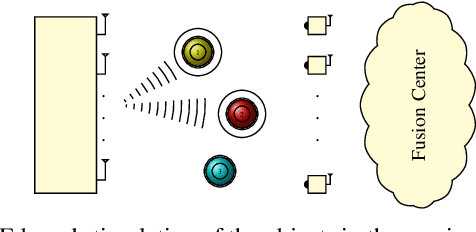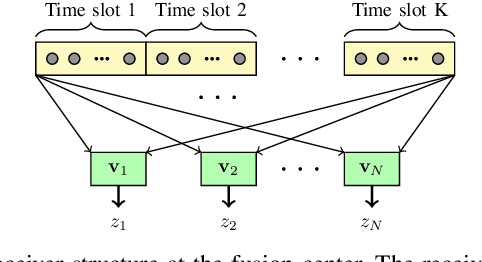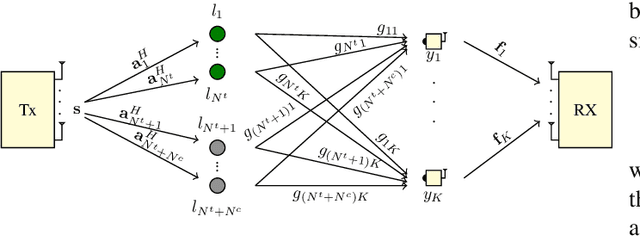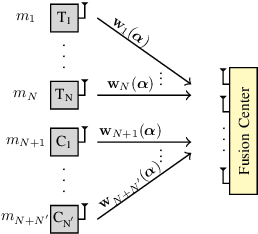Contact-less Material Probing with Distributed Sensors: Joint Sensing and Communication Optimization
Paper and Code
May 17, 2022



The utilization of RF signals to probe material properties of objects is of huge interest both in academia as well as industry. To this end, a setup is investigated, in which a transmitter equipped with a two-dimensional multi-antenna array dispatches a signal, which hits objects in the environment and the reflections from the objects are captured by distributed sensors. The received signal at those sensors are then amplified and forwarded to a multiple antenna fusion center, which performs space-time post-processing in order to optimize the information extraction. In this process, optimal design of power allocation per object alongside sensors amplifications is of crucial importance. Here, the power allocation and sensors amplifications is jointly optimized, given maximum-ratio combining (MRC) at the fusion center. We formulate this challenge as a sum-power minimization under per-object SINR constraints, a sum-power constraint at the transmitter and individual power constraints at the sensors. Moreover, the advantage of deploying zero-forcing (ZF) and minimum mean-squared error (MMSE) at the fusion center is discussed. Asymptotic analysis is also provided for the case that large number of sensors are deployed in the sensing environment.
 Add to Chrome
Add to Chrome Add to Firefox
Add to Firefox Add to Edge
Add to Edge